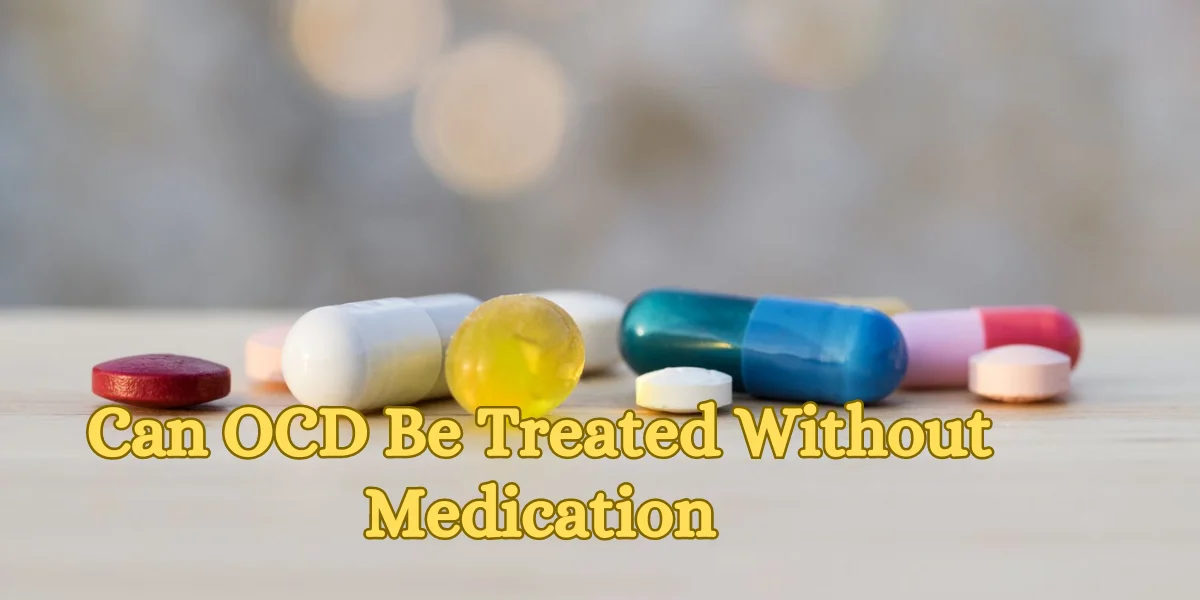Can OCD Be Treated Without Medication
Obsessive–Compulsive Disorder (OCD) is a challenging condition that affects millions worldwide. While medications are commonly prescribed, there are viable alternatives for those seeking non-pharmaceutical interventions.
Understanding OCD Medication
The Role of Medications in OCD
OCD medications, such as selective serotonin reuptake inhibitors (SSRIs) and serotonin-norepinephrine reuptake inhibitors (SNRIs), are often prescribed to alleviate symptoms. While effective for many, they may not be suitable for everyone due to side effects or personal preferences.
Challenges of OCD Medication
OCD medication may pose challenges, including potential side effects, dependency concerns, and the need for ongoing management. It’s crucial to weigh the pros and cons before committing to a medication-based approach.
Non-Medication Treatment Options
Cognitive-Behavioral Therapy (CBT)
CBT, particularly Exposure and Response Prevention (ERP), is a leading non-medication treatment for OCD. It focuses on changing thought patterns and behaviors, offering sustainable relief for many individuals.
Mindfulness and Meditation
Incorporating mindfulness practices into daily life can be beneficial for managing OCD. Mindfulness meditation techniques help individuals become more aware of their thoughts and emotions, fostering better control over compulsive behaviors.

Lifestyle Modifications
Making lifestyle changes, such as adopting a balanced diet, regular exercise, and sufficient sleep, can positively impact OCD symptoms. A holistic approach that addresses overall well-being is crucial for long-term management.
Personalized Strategies
Tailoring Treatment Plans
Recognizing that each individual’s experience with OCD is unique, personalized treatment plans are essential. Collaborating with mental health professionals ensures a tailored approach that combines various strategies for optimal results.
Building Support Systems
Establishing a robust support system is integral to managing OCD without medication. Family, friends, and support groups can provide emotional support, understanding, and encouragement throughout the treatment journey.
In conclusion, treating OCD without medication is a viable option for many individuals. By exploring alternative therapies, making lifestyle adjustments, and building a strong support network, individuals with OCD can find effective, personalized strategies to lead fulfilling lives.
OCD Medication
OCD medication, commonly involving SSRIs or SNRIs, aims to regulate neurotransmitters in the brain. While effective for some, these medications may cause side effects, including nausea or insomnia. Additionally, discontinuation may lead to withdrawal symptoms. It’s crucial to consult with a healthcare professional to weigh the benefits and potential drawbacks before committing to medication-based treatment.
Obsessive–Compulsive Disorder Medication
Managing Obsessive–Compulsive Disorder (OCD) often involves medication as a primary intervention. SSRIs and SNRIs, by altering serotonin levels, can alleviate symptoms. However, individual responses vary, and side effects can impact adherence. Obsessive–Compulsive Disorder Medication Monitoring, dosage adjustments, and regular consultations with healthcare providers are essential for optimizing medication-based management of OCD













